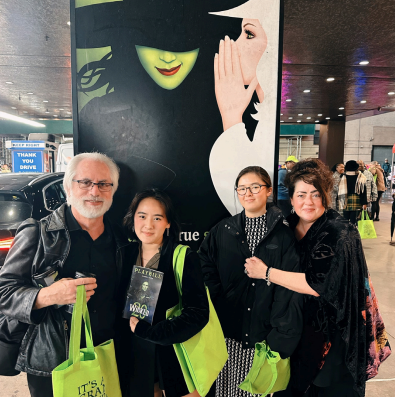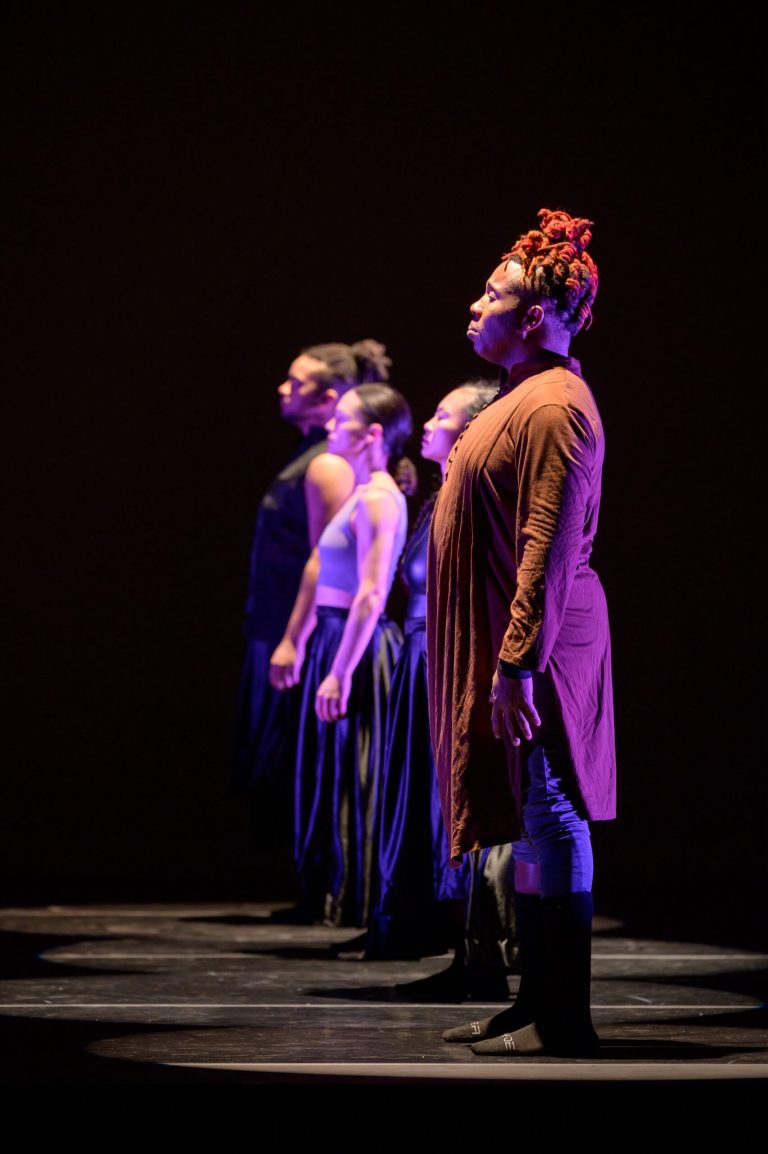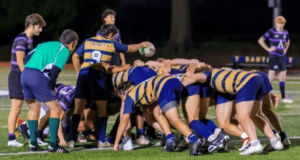Lily Mellitz ’26
Staff Writer
Are people born wicked? Or do they have wickedness thrust upon them? On Oct. 29, 2023, “Wicked the Musical” achieved a momentous milestone, celebrating its 20th consecutive year on Broadway. To celebrate, I dragged myself out of bed at the crack of dawn, shuffled my way to my car, drove to the bustling city of New York and saw the matinee and the evening show with my family. “Wicked” tells the untold story of Glinda the Good and Elphaba, the Wicked Witch of the West, before they became the iconic characters from “The Wizard of Oz.” Adapted from Gregory Maguire’s novel, “Wicked: The Life and Times of the Wicked Witch of the West,” the musical is a professional show inspired by the published fanfiction of “The Wizard of Oz.”
This year, “Wicked” proudly claims the spot as Broadway’s fourth longest-running musical, standing alongside theatrical legends like “Phantom of the Opera,” the revival of “Chicago” and Disney’s “The Lion King,” which hold the top three positions. It is not just the longevity; “Wicked” has an impressive collection of awards including 10 Tonys for Best Musical, six Drama Desk Awards and a Grammy. Week after week, the musical continues to be a box office sensation, often grossing over $1 million. “Wicked” is not just a musical, but also a cultural phenomenon. It has inspired a wave of fan creativity, from fanart to fanfiction and has even propelled an upcoming two-part movie musical, directed by John M. Chu with Cynthia Erivo and Ariana Grande. These achievements are more than just numbers; they represent the musical’s magical ability to enchant audiences, proving that its allure defies gravity and time.
Beyond its beautiful costumes and memorable songs, “Wicked” offers profound lessons that resonate far beyond the stage. The story challenges the conventional notions of good and evil and delves into prevalent social issues such as the harm caused by biases. Elphaba, with her emerald skin, becomes a powerful symbol. Initially shunned, she emerges as a character of remarkable depth, her genuine kindness captivating the audience’s hearts. When she courageously stands up for oppressed animals (creatures persecuted for their differences), the Wonderful Wizard of Oz exploits Elphaba’s appearance, manipulating public opinion to falsely brand her as “wicked” for his political gain. The Wizard’s actions urge us to question what it truly means to be good.
“Wicked” also explores a friendship that transcends societal norms and expectations. Glinda, the perky blonde, and Elphaba, the geeky green outcast, form an unlikely bond. Despite their differences, their relationship evolves into enduring friendship, beautifully illustrating the complexities of friendship: its joys, conflicts, misunderstandings and the strength found in forgiveness. Through Glinda and Elphaba, viewers learn that true friendship is not without its challenges but is built on mutual respect, understanding and unconditional support.
“Wicked” is just as much a production as it is a celebration of friendship, courage, love and difference. Its characters and lessons touch the hearts of its audience, especially Elphaba’s powerful anthem “Defying Gravity,” echoing the sentiment that “Everyone deserves a chance to fly.” “Wicked” imparts the lesson that staying true to ourselves and accepting each other will change us for good. It serves as a reminder that people are not simply black or white but exist within shades of gray… and perhaps even green.





+ There are no comments
Add yours